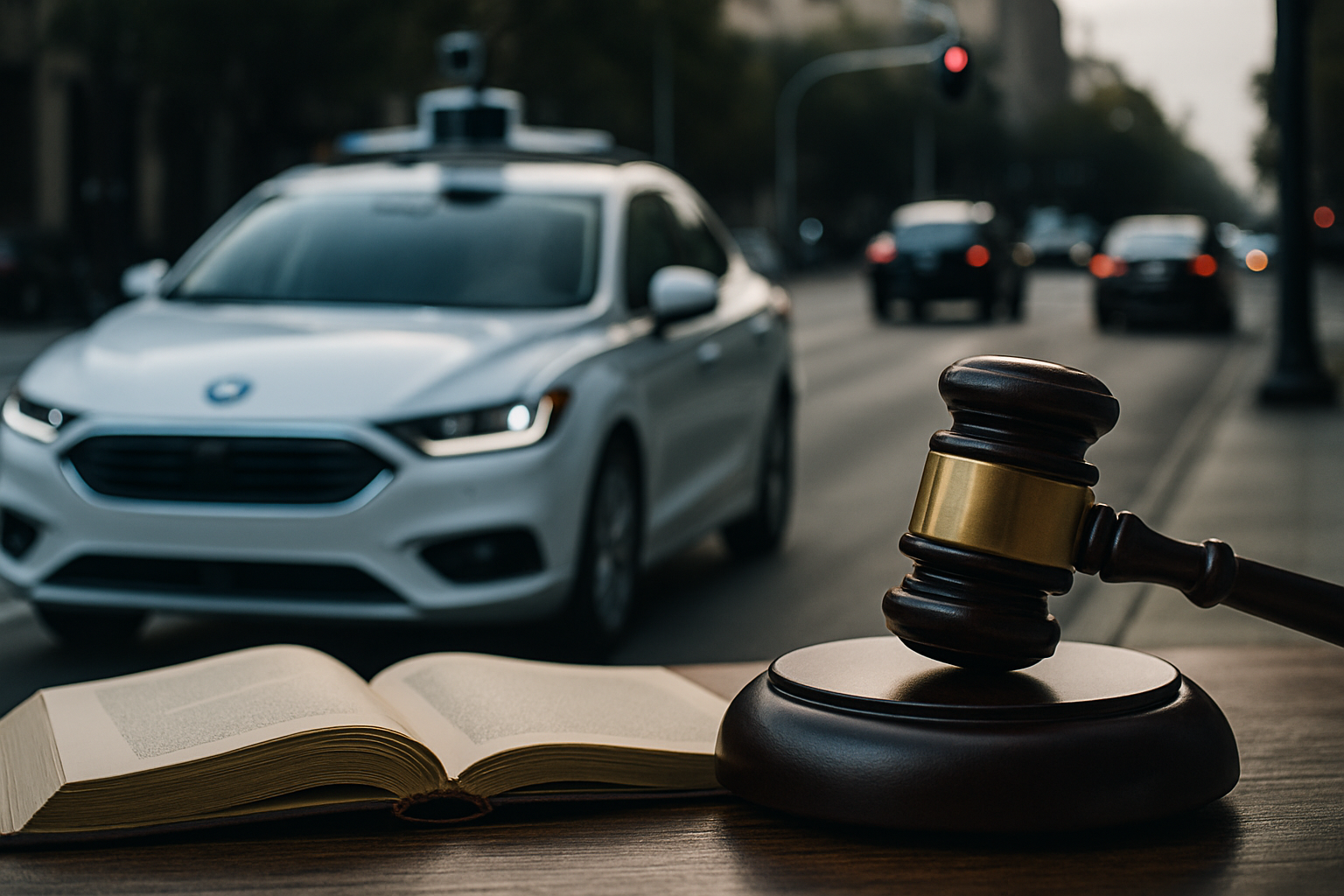Legal Challenges in Regulating Autonomous Vehicles
Introduction: The advent of autonomous vehicles (AVs) has ushered in a new era of transportation, bringing with it a host of complex legal challenges. As these self-driving marvels inch closer to widespread adoption, lawmakers and legal experts grapple with unprecedented questions surrounding liability, safety regulations, and ethical decision-making. This article delves into the intricate legal landscape of AVs, exploring the current regulatory framework and the hurdles that lie ahead.

Liability Conundrums
One of the most pressing legal issues surrounding AVs is determining liability in the event of an accident. Traditional car accidents typically involve driver error, but with AVs, the question of fault becomes murky. Should the manufacturer be held responsible? The software developer? Or perhaps the owner of the vehicle? The UK’s approach thus far has been to place primary liability on insurers, who can then seek recovery from other parties. This model aims to ensure victims receive swift compensation, but it may face challenges as AV technology evolves.
Data Protection and Privacy Concerns
Autonomous vehicles generate and process vast amounts of data, raising significant privacy concerns. The UK’s Data Protection Act 2018, which implements the EU’s General Data Protection Regulation (GDPR), applies to data collected by AVs. However, the unique nature of AV data – including location information, driving patterns, and potentially even biometric data – presents novel challenges. Lawmakers must strike a delicate balance between ensuring road safety and protecting individual privacy rights.
Ethical Dilemmas and Programming Decisions
Perhaps one of the most philosophically challenging aspects of AV regulation is addressing ethical dilemmas in vehicle programming. The famous trolley problem – where a vehicle must choose between two harmful outcomes – takes on new significance in the context of AVs. Should a car be programmed to prioritise the safety of its passengers over pedestrians? Or should it make decisions based on minimising overall harm? These ethical questions have legal implications, as they may influence how courts interpret negligence and intent in AV-related cases.
Cybersecurity and Criminal Law
As vehicles become increasingly connected and automated, they also become potential targets for cyberattacks. The UK’s Computer Misuse Act 1990 provides a foundation for prosecuting cyber crimes, but it may need updating to address the specific vulnerabilities of AVs. Moreover, the potential for AVs to be used in criminal activities – such as drug trafficking or terrorism – raises questions about how criminal law should adapt to this new technology.
International Harmonisation Efforts
The development of AV technology is a global endeavour, and many legal experts argue that an international approach to regulation is necessary. The UK, as a signatory to the Vienna Convention on Road Traffic, must navigate how to align its AV laws with international standards. Post-Brexit, the UK has an opportunity to craft innovative AV regulations, but it must also consider how these will interact with EU and global frameworks to ensure seamless cross-border travel.
The Road Ahead: Adaptive Legislation
As AV technology continues to evolve rapidly, lawmakers face the challenge of creating regulations that are both robust and flexible. The UK government has proposed a gradual approach, with plans to introduce legislation in stages as the technology matures. This adaptive strategy aims to balance the need for clear rules with the flexibility to accommodate technological advancements.
In conclusion, the legal challenges surrounding autonomous vehicles are as complex as they are fascinating. As the UK navigates this uncharted territory, it must craft laws that promote innovation while ensuring public safety and individual rights. The decisions made in the coming years will shape not only the future of transportation but also set precedents for how society adapts to transformative technologies. As AVs move from science fiction to reality, the legal system must evolve in tandem, paving the way for a new era of mobility and jurisprudence.




